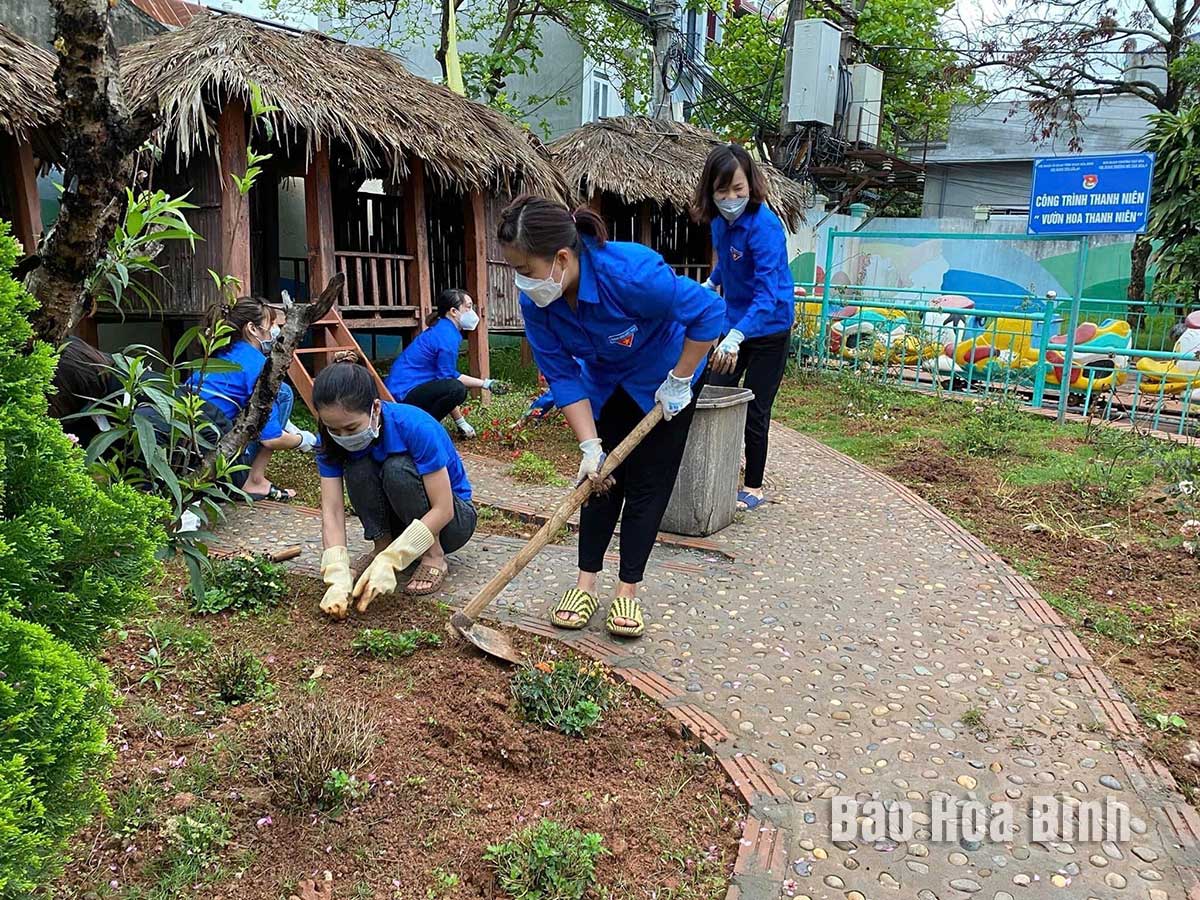
Implementing the national target programme on new-style rural area building, Hoa Binh city has focused on mobilising resources to invest in upgrading traffic infrastructure, cultural facilities, and schools, with 980.8 billion VND (39.8 million USD) mobilised in the 2011-2024 period.

Youth union
members of Tan Hoa A Kindergarten (Hoa Binh city) clean up the school campus,
contributing to improving the quality of national-standard school criteria.
Of the total, 100.32 billion VND has been sourced from the
central budget, 103.12 billion VND from the provincial budget, 225.2 billion
VND from the city budget, over 1 billion VND from the commune budget; 20.98
billion VND from capital of programmes and projects; 351 billion VND from
credit; and 70 billion VND from enterprises.
Notably, thanks to effective dissemination, people in Hoa
Binh city have actively participated in building new-style rural areas through
contributing workdays, donating land, materials and crops, and renovating
houses, with a converted value of 109.2 billion VND.
Hoa Binh province is undergoing a dynamic transformation amid Vietnam’s national digital transition. Building on Poliburo’s Resolution No. 57-NQ/TW on breakthroughs in science, technology, innovation, and national digital transformation, the province has rolled out a wide range of practical action plans. A standout initiative is the "Digital Literacy for All” movement, an effort to ensure that no one is left behind in the digital era.
Hoa Binh province is undergoing a dynamic transformation in the wake of the national digital transformation movement. Building on Resolution No. 57-NQ/TW of the Politburo on breakthroughs in science, technology, innovation, and national digital transformation, the province has implemented a wide range of practical action plans. A standout initiative is the "Digital Literacy for All” movement ambitious effort to ensure that no one is left behind in the digital age.
With a spirit of unity and proactive problem-solving, the Party Committee, the government and the people of Dong Lai Commune (Tan Lac District) have made great strides in implementing the resolutions of the 24th Party Congress of the commune for the 2020 - 2025 term. Focusing on leadership and practical actions, the commune has brought the Party’s resolutions into daily life, creating strong impacts and pushing the local development forward.
Amid the nationwide push for digital transformation, young people in Hoa Binh Province are stepping up as dynamic pioneers, applying technology to enhance Youth Union operations and expand the reach of youth-led initiatives. Through creativity and adaptability, Youth Union organizations at all levels have introduced a series of practical solutions, contributing to modern governance and community development.
In recent years, An Nghia commune, located in Lac Son district, has stepped up administrative reform, focusing on improving the quality and efficiency of its single-window service unit for receiving and processing administrative procedures. These improvements have helped create favourable conditions for local residents and organisations to handle administrative procedures, contributing to the commune’s broader socio-economic development.
The Prime Minister-approved master plan to develop the multi-use value of forests ecosystems through 2030, with a vision to 2050, aims to improve the management and sustainable use of forest resources, create jobs, increase incomes, and improve the living standards of ethnic minorities, people in mountainous and remote areas, forest workers and those living near forests.



